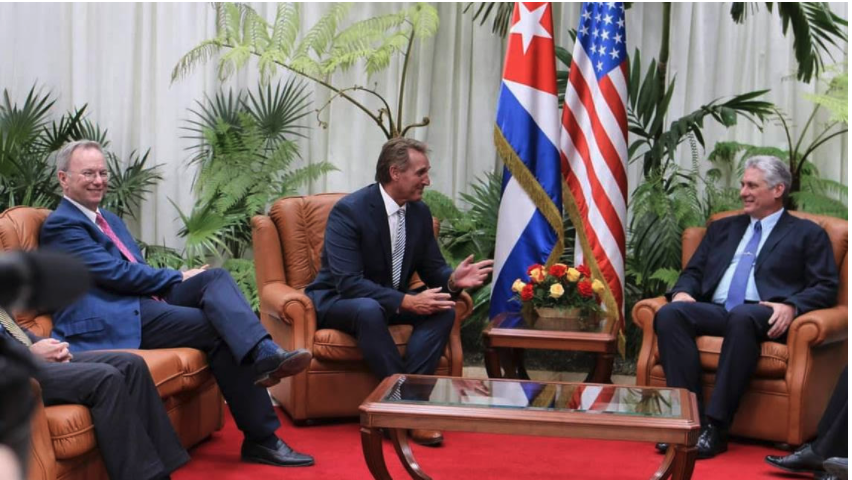To promote a peaceful transition to a Cuba that respects human rights
and political and economic freedoms

SFRC recognizes Cuban opposition movements. The case for nonviolent struggle and sanctions. Corruption exposed at the UN Human Rights Council

Ladies in White and the San Isidro Movement recognized by the U.S. Senate Foreign Relations Committee
Dictatorships and bad actors on the international stage are working to strip civil society and democracies of the tools to nonviolently defeat them. They fear and despise the legacy of Gene Sharp (1928 – 2018) founder of the Albert Einstein Institution, and a theoretician of nonviolent action who in 1990 at the National Conference on Nonviolent Sanctions and Defense in Boston, made the case for nonviolent struggle:
"I say nonviolent struggle is armed struggle. And we have to take back that term from those advocates of violence who seek to justify with pretty words that kind of combat. Only with this type of struggle one fights with psychological weapons, social weapons, economic weapons and political weapons. And that this is ultimately more powerful against oppression, injustice and tyranny than violence."
According to Professor Sharp in his 2013 book HOW NONVIOLENT STRUGGLE WORKS (available online) , third parties on the international scene, including countries, can play a supplementary and complementary role but are never leading the struggle.
"Third-party actions may include protests, public declarations, demonstrations, diplomatic actions, economic sanctions, and the like. They ought to be seen as supplementary and complementary, but never as the main actions of the struggle. The proportion of successes among past cases of international nonviolent action, especially by third parties, is extremely small. The actions have been generally symbolic, and more substantial types, as economic sanctions, have not been applied on the systematic and sustained basis required for effectiveness. International action is not a substitute for internal action by the grievance group itself."
Nonviolent movements can obtain a measure of protection with international solidarity, provided through reporting on their plight, and a range of tools that include economic and political sanctions by both civil society and other nation states. Human rights abusers, and outlaw regimes that murder their own people view these instruments with concern, and have managed through coordination with each other to reshape international institutions to undermine human rights. Worse yet, companies wishing to make short term profits with these regimes are also hostile to sanctions against them.

There is also a moral dimension to not cooperating with bad actors, especially those engaged in crimes against humanity, or genocide against their own or other populations. Engaging in commerce with outlaw regimes carrying out criminal activities either at the level of a state or a company can lead to complicity in their crimes. Ford, GM, and IBM, along with others had much to answer for after their collaboration with Nazi Germany prior to and during WW2 became known. Yahoo! has a lot to answer for in providing information to the Peoples Republic of China to hunt, jail, torture, and kill Chinese dissidents for internet related offenses, and to a lesser extent so do Google and Microsoft with violating freedom of expression in China.

Díaz-Canel, right, Sen. Jeff Flake, center, and Eric Schmidt, former exec chair Google 2018 (B Perlmutter Twitter)
Google over the past few years has engaged with the Cuban dictatorship in an effort to expand their presence on the island, but "a source" claimed in a September 1, 2017 article in The Miami Herald that Google had included a "freedom of information clause" to store content on Google servers in Cuba. Considering Google's negative track record in the People's Republic of China the obvious question is "what could go wrong?" and the answer when dealing with totalitarian regimes is "a lot" including the theft of technology, intellectual property, and the endangering of dissidents lives. Amnesty International called out the company in 2018 for trying to set up a censored search engine in China called "Project Dragonfly."
Mariela Machado Fantacchiotti, telecommunications engineer and program manager of operations at Engineering for Change writing in the Inter-American Dialogue's publication Latin America Advisor on April 16, 2019 put it succinctly: "This deal with Google is a huge success for the company in entering a new market, but I am cautious to see how it might benefit the Cuban people and under which conditions, surveillance-wise.”




No comments:
Post a Comment